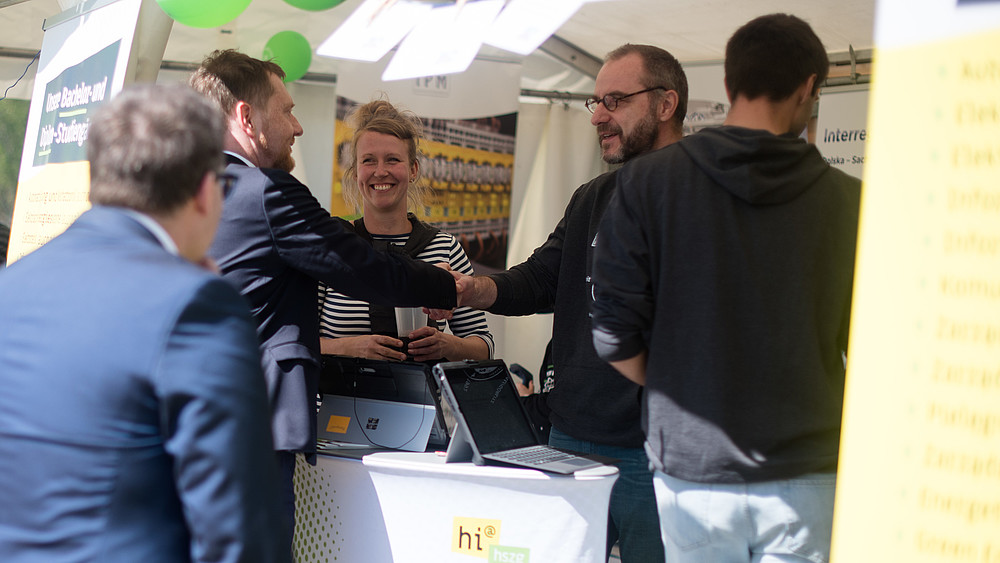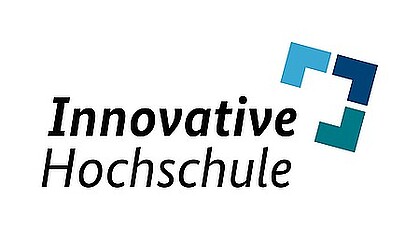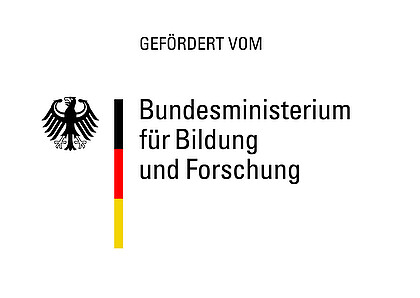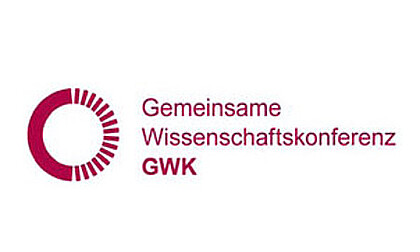The HSZG presented itself at the Europe Festival to mark the 20th anniversary of the EU's eastward expansion.

The Zittau/Görlitz University of Applied Sciences (HSZG) was delighted with the excellent weather and the high level of interest at the Europe Festival to mark the 20th anniversary of the EU's eastward enlargement at the Dreiländerpunkt in Zittau on April 27, 2024. This celebration among friends provided an excellent opportunity to build further bridges between Germany, Poland and the Czech Republic and to strengthen cross-border relations in the region.
The Europe Festival offered a varied program for the whole family, including the "Europe of Children" and a cultural program on the festival stage. Visitors were invited to visit the stands of the HSCG and other partners and take part in the various activities.
The HSZG was represented with a large pavilion, which was set up on the festival meadow on the banks of the Neisse. Interested visitors were able to find out about the following research topics:
At the stand of the ZIRKON research institute, the topic of waste management and recycling in a cross-border context was addressed under the theme "We haven't been talking about waste for 20 years, but ABOUT waste". Employees have been working on this important topic for 20 years and reported on the progress and challenges in this area. There is an annual landfill workshop held jointly with the TU Liberec, which will take place this year on October 29/30 in Liberec.
In addition, a model of a large-scale plant built in 2007 in Bautzen/Nadelwitz in Czech-German cooperation was presented, giving visitors the opportunity to discover the importance of soil as a water filter.
ZIRKON also presented research work on silicone elastomers, which dealt with the suitability of these materials as high-voltage insulators. Particular attention was paid to the damage mechanisms.
In the IPM area of the pavilion, visitors were able to experience the Zittau power plant laboratory virtually with VR glasses and find out about the research work of our Institute of Process Engineering, Process Automation and Metrology (IPM). This facility, financed by the European Regional Development Fund, was a significant research investment by the HSZG.
The GAT research institute presented technical assistance systems and the latest findings that help older people to manage their everyday lives more easily.
Prof. Uwe Schmidt from the Faculty of Electrical Engineering and Computer Science was present to answer questions about energy security and our power grids - especially in light of the energy transition.
The Life and Technology project, which is funded by the "Change through innovation in the region" funding program, took the opportunity to meet a broad and diverse audience and conducted a survey. Participants willing to provide information were rewarded with a square bar of chocolate - good thing it was only a pleasant 20° C. Saxony's Minister President Michael Kretschmer also took the opportunity to chat with Rector Prof. Alexander Kratzsch and Vice-Rector for Research Prof. Raj Kollmorgen and find out more about the newly launched German-Polish INTERREG project "Green Future of the Border Region".
Our university sports team was also on site and even captivated police officers on patrol with its mini table tennis tables.
Last-minute students were able to pick up information material on the HSZG's degree courses and find out more in conversation.
The wide range of activities was rounded off by a button machine, which guests could use to design their own souvenir buttons.
At this point, we would like to refer once again to the article by Prof. Raj Kollmorgen on the occasion of the Europe Festival. He reminds us that the EU reached an important milestone in 2004 when ten Eastern European countries, including Poland and the Czech Republic, joined the EU after a long accession process.
This not only marked the end of an important stage in the development of the post-socialist countries, but also the institutional overcoming of the division of Europe since the Second World War. Prof. Kollmorgen emphasized the role of the Zittau/Görlitz University of Applied Sciences as an important academic institution in the three-country region and highlighted the opportunities for transnational communication and cooperation opened up by the accession of Poland and the Czech Republic to the EU and referred to the diverse programmes and instruments of the EU for the promotion of science and research as well as the successful participation of the HSZG in EU-funded projects.
Above all, however, it is also important to critically examine the current challenges and (over)regulations of the EU without questioning the overwhelming achievements of the EU.
The article can be accessed here.
The HSZG's participation in the Europe Festival was organized by Kristin Sprechert, a member of the Saxony5 transfer project.



